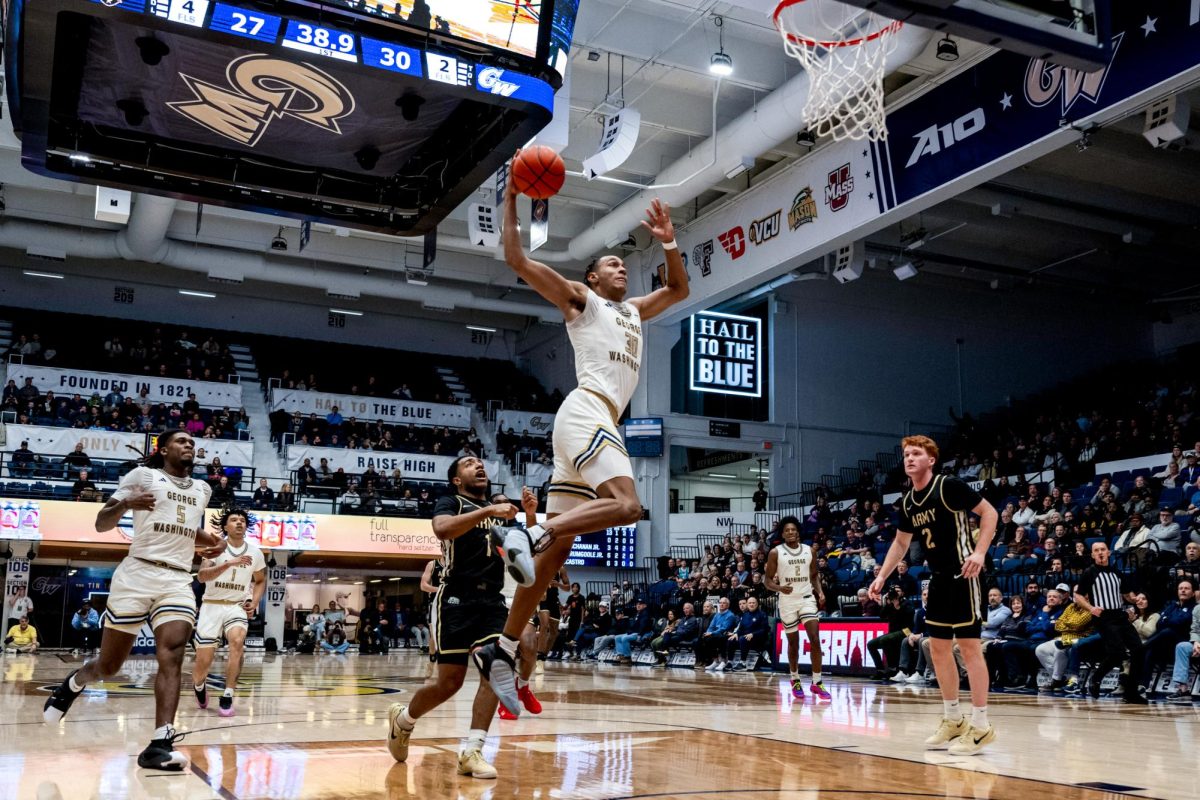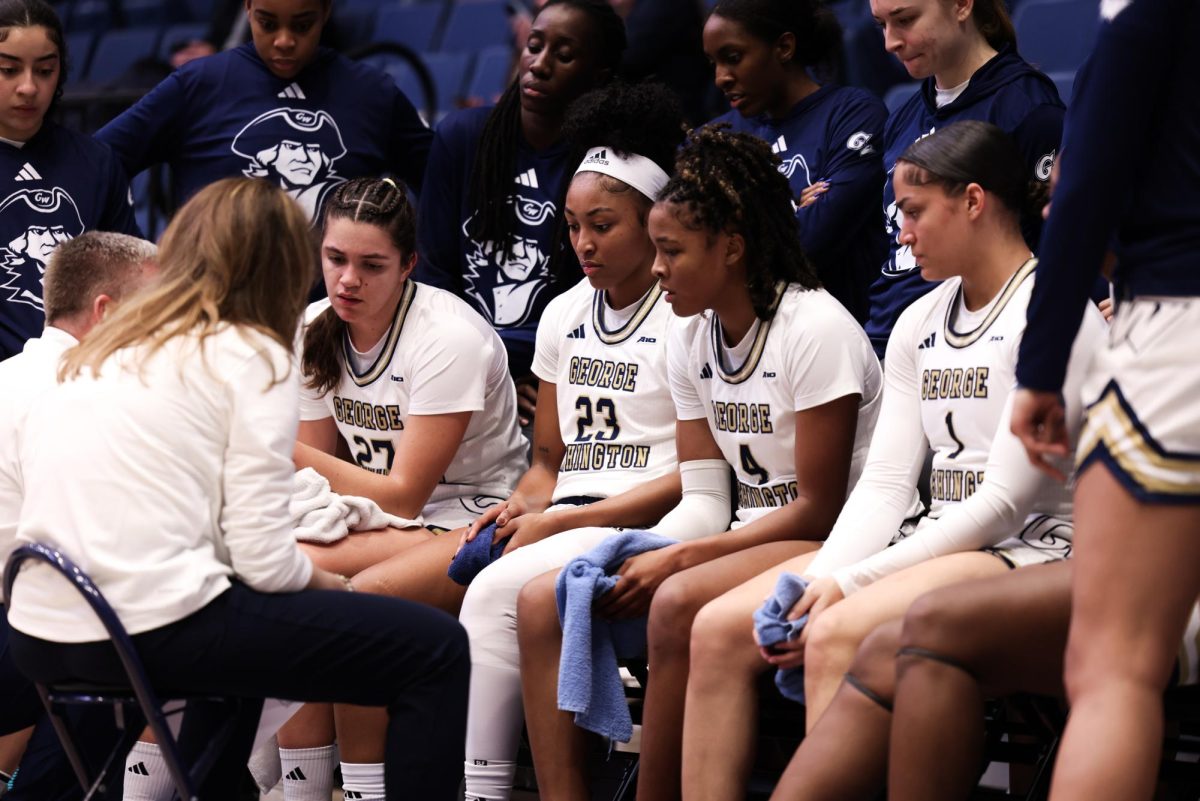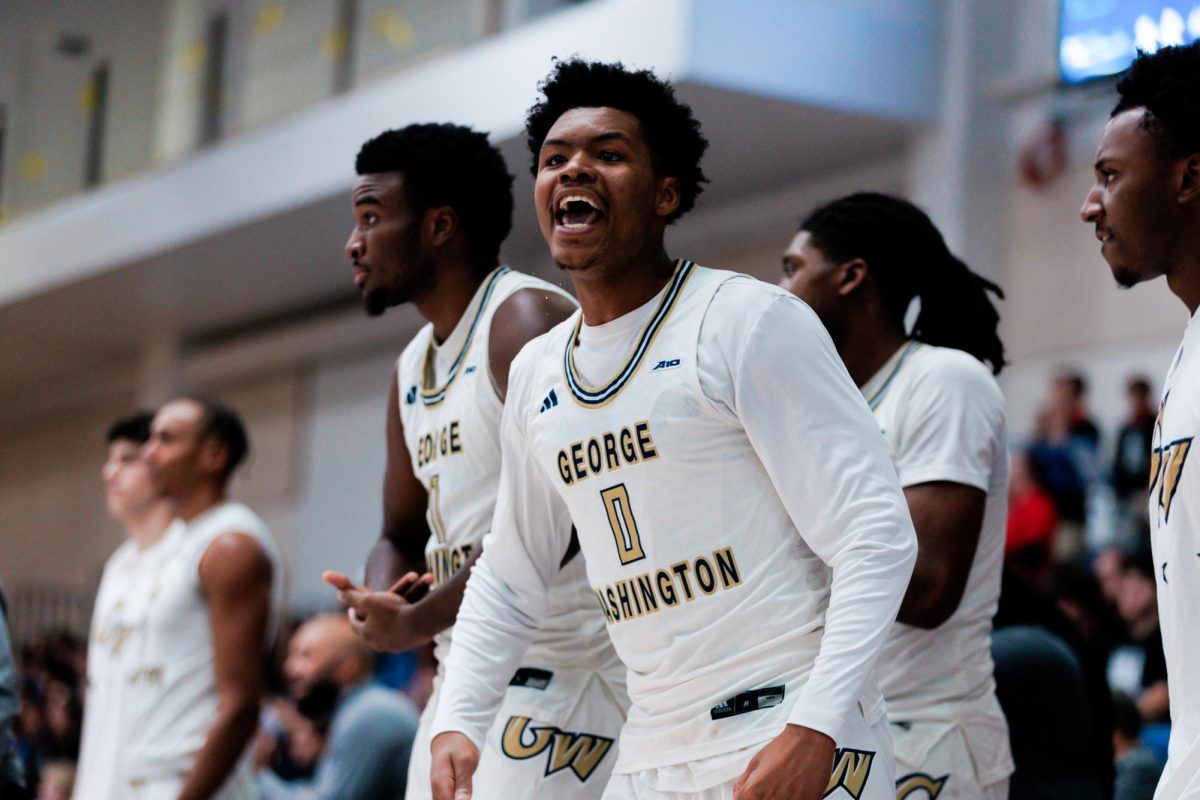There are times in sports when an athlete comes along who defies the odds. Junior Erin Coppedge from the GW women’s soccer team is that kind of athlete.
When the team found itself in a four-game losing streak in September, it needed to make a change. Coach Tanya Vogel decided to move Coppedge, a defender, into a forward position against Virginia Tech.
We needed Erin up front and she rose to the occasion, Vogel said.
In the 11 games that followed the switch, Coppedge scored a team-high 12 goals on 37 shots, including three game-winners. Combined with two assists, Coppedge ended the season with 26 points, Atlantic 10 Player of the Week honors in October and a spot on Soccer America’s Team of the week.
Erin lifted us up by scoring goals for us, Vogel said. I know her coaches and teammates would like to thank her for scoring on the opportunities she had.
Coppedge faced her position change with the same ease that she has shown in overcoming other obstacles in her life. A hearing impairment leaves Coppedge deaf in her right ear and 75 to 80 percent deaf in her left ear.
But Coppedge’s disability has never sidelined her. A star athlete growing up in Annapolis, Md., she played soccer, basketball and lacrosse at St. Mary’s High School. The talented St. Mary’s soccer squad was ranked no.18 in the nation at one point during Coppedge’s high school career.
There must have been moments in my life when I said. `Why me?’ Coppedge said. But, I never felt like I couldn’t do something because I couldn’t hear.
Coppedge said her uncle Casey Bahr, a defender on the 1976 U.S. Olympic soccer team, had the greatest influence on her as a player.
He helped me become a defender. We talked and played soccer all the time growing up, Coppedge said. I always felt normal with other kids because my family never made me feel different. They were always supportive.
On the soccer field, Coppedge uses her natural ability and field awareness to compensate for her hearing loss.
Not being able to rely on my hearing makes my vision better because I have to be looking all the time, Coppedge said.
Vogel extolled Coppedge’s soccer instincts.
We always practice taking looks, which means knowing where you are and your teammates are on the field, Vogel said. Without her hearing, Erin takes her looks naturally.
This is the first year Coppedge relied on only lip-reading to understand her coaches and teammates on the field. She cannot play with her hearing aid because it cannot get wet. Teammates repeat what the coaches are saying on the sidelines for her, usually on a dead ball or during a throw-in.
My teammates had to adjust to me not being able to hear at all without my hearing aid, Coppedge said. It can be frustrating at times, but we work through it.
Coach Vogel noted that despite the hearing barrier, Coppedge is a naturally excellent player. It was confirmed Nov. 3 when A-10 head coaches named Coppedge to the All-Conference second team.
Whether it’s at soccer, at camp working with kids, as a teammate, or as an athlete, everyone speaks highly of Erin, Vogel said. She is a very likeable person and I like coaching her. I look forward to coaching her next season.
Now that the women’s season is over, falling short of an A-10 playoff berth, Coppedge will play on the Women’s Deaf National Soccer Team. She said she hopes to play with the team in Belgium this spring, pending NCAA approval. Before playing with the team, Coppedge said she never interacted with other deaf people.
The team has really opened up the deaf culture to me and helped me form some great friendships, Coppedge said.
Off the field, Coppedge is majoring in exercise science and aspires to be an athletic trainer at Gallaudet University, where she can use knowledge of her disability to help others like her.
The consummate athlete, Coppedge is already setting her sights on next season.
My goal is for us to make it to the Atlantic-10 championship, Coppedge said.
Even if the odds are against GW winning the A-10 title next season, with Coppedge on the team, anything can happen.






